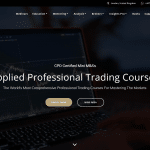Forex broker regulations are legal and financial frameworks established by national regulatory bodies to protect traders, ensure fair trading practices, and prevent fraud in the foreign exchange market. Regulated brokers are required to comply with strict rules on fund segregation, transparency, leverage limits, and capital adequacy.
This guide outlines the most important forex regulatory bodies worldwide, what regulated status means, and how to verify a broker’s licence.
Why Forex Broker Regulation Matters
Key Benefits
- Client Fund Protection: Segregated bank accounts
- Compensation Schemes: Insurance against broker insolvency
- Risk Controls: Leverage caps, negative balance protection
- Transparent Pricing: Fair execution standards
- Fraud Prevention: Licensed brokers must pass audits and background checks
Red Flags in Unregulated Brokers
- Lack of contact information or physical office
- Unclear legal entity or terms
- Excessive leverage (e.g. 1:2000) without regulatory backing
- Withdrawal delays or account suspensions
- No dispute resolution process
Major Forex Regulatory Authorities
| Country | Regulator | Role & Coverage | Compensation Scheme |
|---|---|---|---|
| United Kingdom | FCA (Financial Conduct Authority) | Retail and pro trading, strict controls | FSCS – up to £85,000 |
| Australia | ASIC (Australian Securities & Investments Commission) | Risk warnings, leverage caps | No formal scheme, strong banking laws |
| European Union | CySEC (Cyprus Securities and Exchange Commission) | MiFID II-compliant, passporting | ICF – up to €20,000 |
| South Africa | FSCA (Financial Sector Conduct Authority) | Broad CFD oversight | None |
| Dubai/UAE | DFSA (Dubai Financial Services Authority) | DIFC-authorised FX brokers | No retail guarantee |
| USA | NFA/CFTC (National Futures Association/Commodity Futures Trading Commission) | Futures & FX, strict compliance | NFA monitoring, no FSCS-like scheme |
| Offshore | FSA (Seychelles), FSC (Mauritius), IFSC (Belize) | Flexible, low-cost entry | No protection |
FCA (UK) Regulation – Global Benchmark
- Leverage: Max 1:30 retail
- Protection: FSCS up to £85,000
- Tax Advantage: Spread betting exempt from CGT for UK residents
- Best For: UK and EU traders seeking high protection
- Brokers: Intertrader, Pepperstone UK, UK
ASIC (Australia) Regulation – Trusted APAC Hub
- Leverage: Max 1:30 retail
- Capital Requirement: AUD $1 million
- Segregated Funds: Required
- Brokers: Vantage, AvaTrade AU, IC Markets
CySEC (EU) Regulation – Ideal for EU Passporting
- Leverage: 1:30 retail (MiFID II)
- Investor Protection: €20,000 via ICF
- Cross-border EU access
- Brokers: XM, FXTM, IronFX
How to Check If a Broker Is Regulated
- Go to the regulator’s website (e.g. FCA Register: register.fca.org.uk)
- Enter the broker’s legal name or FRN
- Confirm authorisation status, trading permissions, and registered address
- Review whether they’re allowed to offer CFDs, spread betting, forex, and leverage
- Ensure the broker’s URL matches its registered entity
ECN, STP, and Market Maker Regulation
| Execution Type | Does It Require Regulation? | Why It Matters |
|---|---|---|
| ECN | Yes | High-speed execution, liquidity access |
| STP | Yes | Direct market routing |
| Market Maker | Yes | Broker takes opposite side – needs auditing |
Regulatory Requirements for Forex Brokers
| Requirement | Purpose |
|---|---|
| Segregated Accounts | Protect client funds from misuse |
| Risk Warnings | Educate retail traders |
| Leverage Limits | Prevent account blowouts |
| Capital Reserves | Ensure solvency during market events |
| Regular Audits | Enforce transparency and honesty |
Offshore vs Regulated Brokers
| Factor | Regulated Broker (e.g. FCA) | Offshore Broker (e.g. Seychelles) |
|---|---|---|
| Fund Protection | ✅ Yes (FSCS/ICF) | ❌ None |
| Leverage Limit | 1:30 retail | Up to 1:1000+ |
| Ease of Setup | Complex and costly | Fast and low-cost |
| Trust & Reputation | High | Lower |
| Suitable For | Beginners and pros | High-risk traders or IB models |
Key Takeaways
- Forex broker regulation protects your capital, trade execution, and legal rights.
- FCA, ASIC, and CySEC are the top regulatory authorities for trader protection.
- Always verify a broker’s licence via the official register before depositing funds.
- Offshore brokers offer high leverage but no fund protection or legal safeguards.
- Choose a regulated broker with clear risk disclosures, fair pricing, and audited operations.
Frequently Asked Questions
What is a regulated forex broker?
A regulated forex broker is licensed by a government authority to provide trading services under specific legal and financial standards.
Why is forex regulation important?
It protects traders from fraud, ensures transparent execution, and enforces client fund protection rules.
How do I check if a broker is regulated?
Use the regulator’s online register (e.g. FCA, ASIC, CySEC) to search the broker’s licence and permissions.
Can I trade with an unregulated broker?
Yes, but it’s risky. You may face withdrawal issues, poor pricing, or no legal recourse in case of fraud.
What is the safest forex regulator?
The FCA (UK) and ASIC (Australia) are widely considered the safest due to strict oversight and compensation schemes.




Leave a Reply
Please log in or register to share your thoughts.